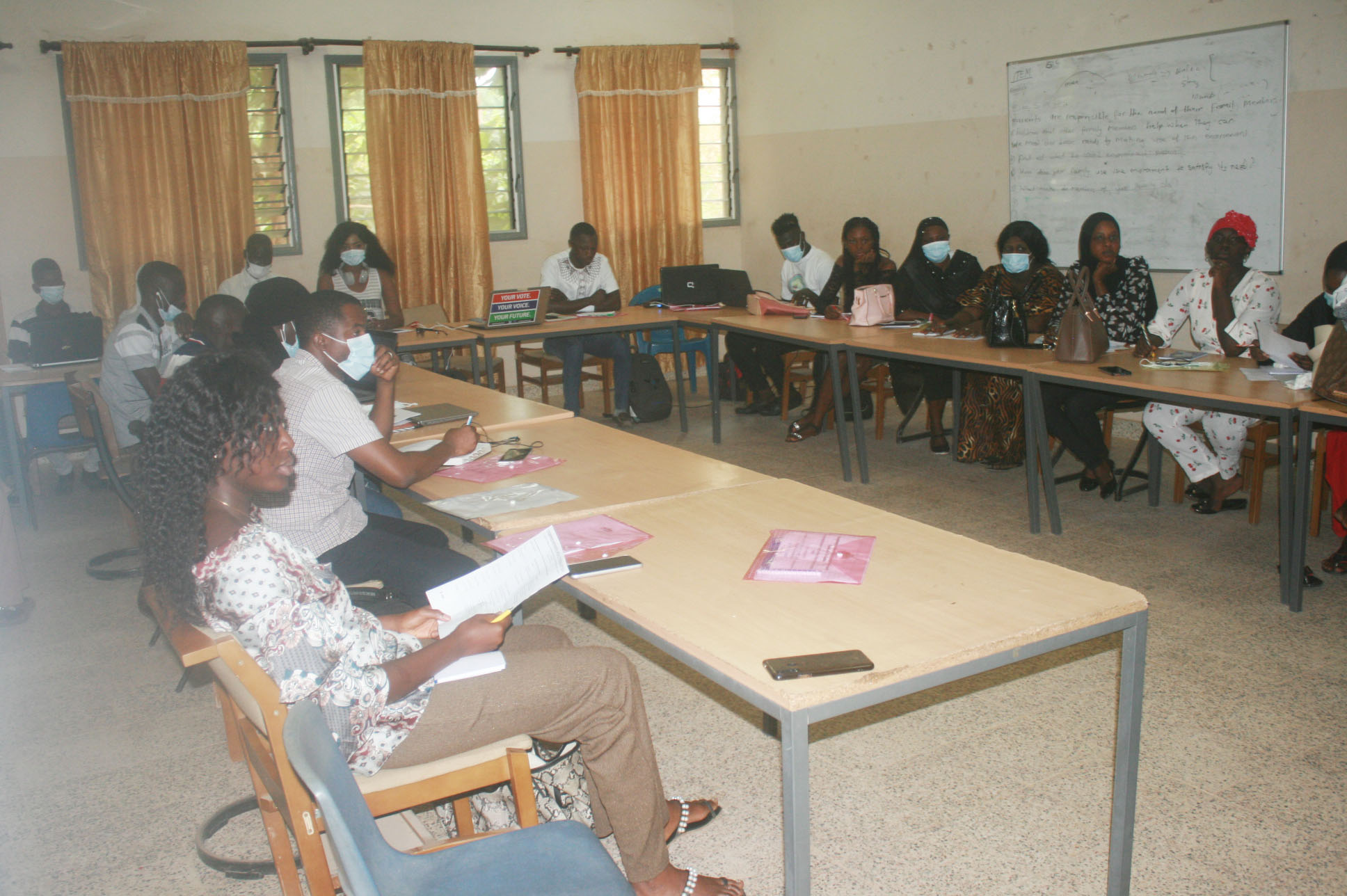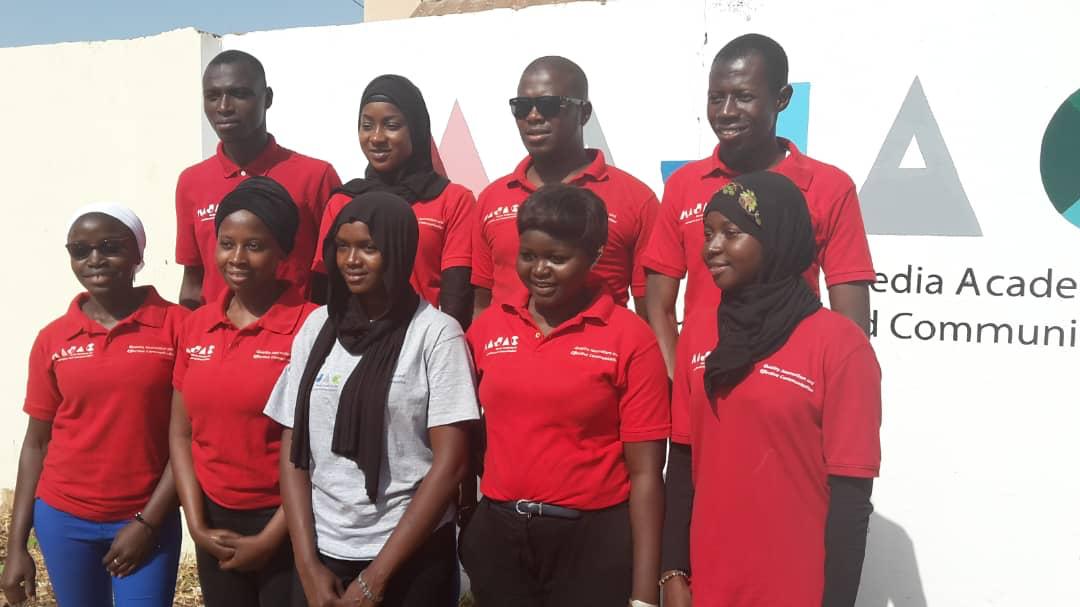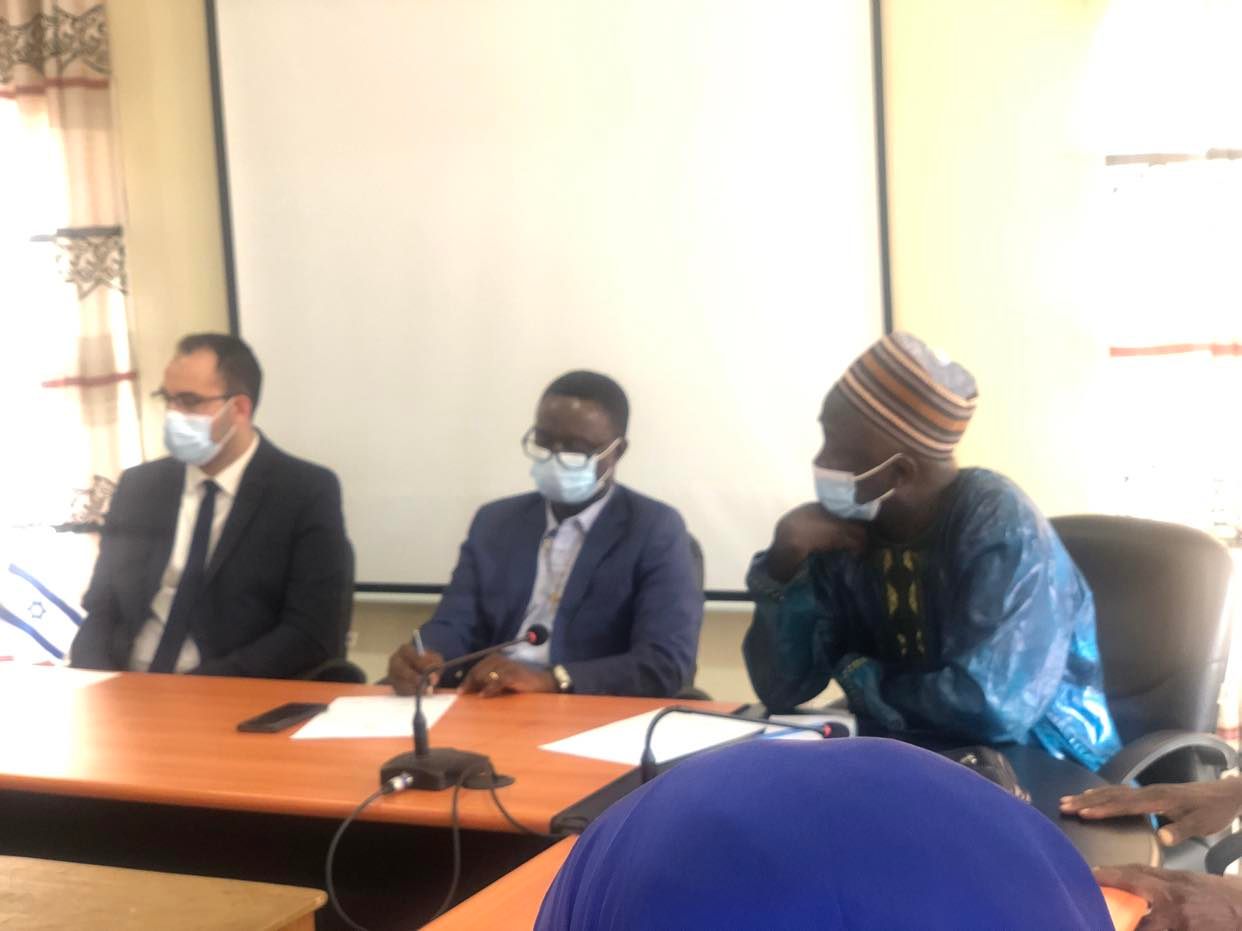By Yunus S Saliu
At least 25 journalists were Wednesday gathered at the Education Region One conference hall for the dissemination reports on Comprehensive Health Education research findings.
The research findings dissemination meeting was organized by the Ministry of Basic and Secondary Education (MoBSE) with the research team for the Comprehensive Health Education to discuss adolescent sexual and reproductive health (ASRH) issues under a project titled: Strengthening Access to Quality Comprehensive Health Education in The Gambia.
Strengthening Access to Quality Comprehensive Health Education in The Gambia is an implementation research project done by Ministry of Basic and Secondary Education with funding from International Development Research Center (IDRC), Canada.
Speaking at the opening of the forum, Momodou Jeng, Director of Curriculum Research, Evaluation and Development Directorate of Ministry of Basic and Secondary Education extended appreciation to IDRC for supporting the government of The Gambia and as well as the sector (education) to conduct the research on Comprehensive Health Education in the country, especially in the Kanifing Municipality and Banjul City Council.
He noted that the ongoing project – Strengthening Access to Quality Comprehensive Health Education in The Gambia is a pilot project targeting the two mentioned communities but with the hope, if successful, will be replicated to cover other regions.
Both in KM and BCC, he said they are targeting about 43 schools which include Upper Basic Schools and Senior Secondary Schools.
The CREDD Director outlined some issues around CHE which include STIs, teenage pregnancy, abortion, menstruation and all other related matters, while noted the importance of how to properly imbibe it into the school curriculum hence the project does targeting adult and adolescents among other reasons for having UBS and SSS.
He noted further that it does not limited to in-school only but out-of-school pupils, too, that will need information about CHE; “when we started the engagement of relevant stakeholders, we realized that lots of people are developing interest in it.”
According to him anytime the Ministry is developing curriculum “we want to have evidence to help us design the appropriate content, decide the appropriate categories,” he stated, hile applauded the team of the researchers for the project for a job well done.
Ms Phebian Ina Grant-Sagnia, principal investigator of project for Strengthening Access to Quality Comprehensive Health Education for in-and-out of School Adolescents in Region I, The Gambia who is also a Principal Health Researcher Ministry of Health gave a comprehensive presentation on the background of the project – Strengthening Access to Quality Comprehensive Health Education in The Gambia.
According to her the study, she explained, was in four different phases. Phase 1, she disclosed, include a simple random survey with in school adolescents aged 10-19 years stratified by age and sex from selected public and private schools in Western Region 1, Kanifing Municipality Council with focus group discussions with out-of-school adolescents. And key informant interviews of school principals and teachers, curriculum developers and program implementers, staffs of youth organizations and NGOs, and also “religious and traditional leaders were used to collect quantitative and qualitative data,” she noted.
On phase two, the quantitative and qualitative data collected analysed and used to support the design and implementation of school and community-based programs, while phase three is an assessment into the effect of the implementation of the school and community-based programs.
And the fourth phase, she said, the lessons learned from the implementation of the school and community-based programs to be used to identify the relevant factors to consider in ensuring effective coordination of comprehensive health education across various partners and in sustaining and scaling up of the schools and community-based programs to other Gambian regions.
Dr Jainaba Sey-Sawo, Head of department of Nursing, University of The Gambia and Fatou Cham Senior Nursing Officer, Ministry of Health both made very interactive presentations on Access to sexual and reproductive health rights and services; and prevalence and consequences of unwanted pregnancy respectively. While Dr Mat Lowe, SSWH made presentation and discussed role of the media in promoting sexual and reproductive health.




